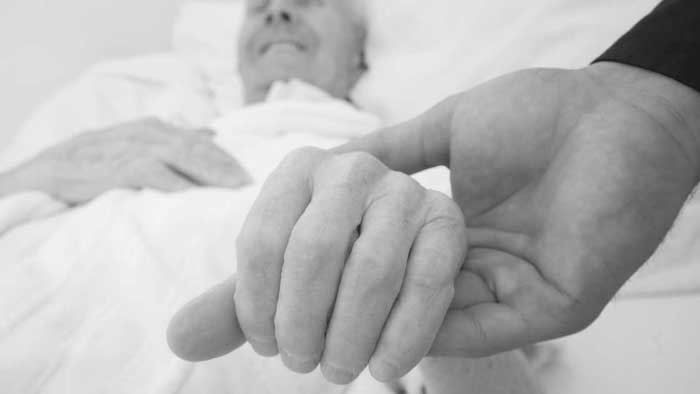
I have been learning more about long-term illness, caregivers, grief and peace. Two experiences were so helpful:
• I was invited as a guest speaker by the Last Chapter Group at Bacoa (formerly Barrington Area Council on Aging) co-facilitated by Pam Pellizzari, memory programs director, and clinical social worker Deb Torres. But I ended up learning a lot from them! This is a great group with thoughtful members. It is open free to caregivers, both family and professionals, as well as bereaved and community members. It meets once a month on Zoom. Contact Pellizzari at (847) 881-0477.
• A friend who explained to me, one-on-one, about the experience of being a three-year caregiver at home to her beloved husband. How totally encompassing it was, what she did, and her own recovery from that. How she feels she did the right thing, and how giving of yourself as a caregiver does bring peace.
I am very grateful to these three. I learned so much:
Grief may be quite different for long-term caregivers — those who have devoted themselves to taking care of a spouse or parent for several years because of a slow, but terminal illness — and for medical professional caregivers working with memory patients.
The big differences seem to be:
• Anticipatory grief: They know it’s inevitable and coming in a year, two years, three years, so they partially prepare emotionally for it ahead of time. This often softens the blow when the day comes. I knew about this concept of course, but didn’t realize how important it really is to long-term caregivers.
• A sense of relief that comes for both their loved one and for themselves.
• A sense of “finding peace” or “being at peace.” Peace not just for the beloved, but a sense of “being at peace” for the caregiver herself or himself.
I remember at the after-burial dinner for my own dear husband, a friend came up to me to console me. She had been a caregiver at home to her husband who died after a long terminal illness. She said how sorry she was and then added: “In a way it’s a relief.”
I was horrified. My husband had died from a totally unexpected stroke. I just said, “Oh no, I would have helped him forever, even if all he could do is listen to me reading him a nice story.” I had no idea what she meant.
So I just walked away to join the others, not understanding what she had experienced herself as a longtime caregiver to her dying husband. I did not understand.
I also did everything I could for my beloved Baheej, but it was not at-home caregiving. I lived with him day and night in his hospital room for his last seven weeks. He was taken to the hospital the night of his stroke and never came home again. I just moved in the hospital with him. The luggage from our trip the day before was still in the car, so I had clothes, and what I needed to stay. And after a few weeks, after his second stroke, which was in the hospital, I was told he would not recover. But I just stayed with him and did what I could to keep him company and watch over his care. But still, his death was so sudden.
So I am very grateful for this helpful group and friend. And it makes me think of the importance of support groups; It could be your own family and friends, or it could be a community support group for bereaved. It’s important to select a group that fits with your own experiences and situation, so that you can learn from others and they are having discussions that help you and each other.
Actually I belonged to a women’s support group that used to meet on Monday mornings at a local Lutheran church. They invited me as a guest speaker, and when they asked me to join, they were such nice and interesting women, I did! We had great discussions and usually went out to lunch together after the meeting. We don’t meet now of course. I miss them.
The point is: Grief takes many forms, many manifestations. And it’s important to support those dealing with prolonged caregiving — probably someone right in your own friendship circle, your neighborhood, your interest groups, your church or your own family. The more we understand, the more we can extend ourselves and help others.
Complete Article ↪HERE↩!
